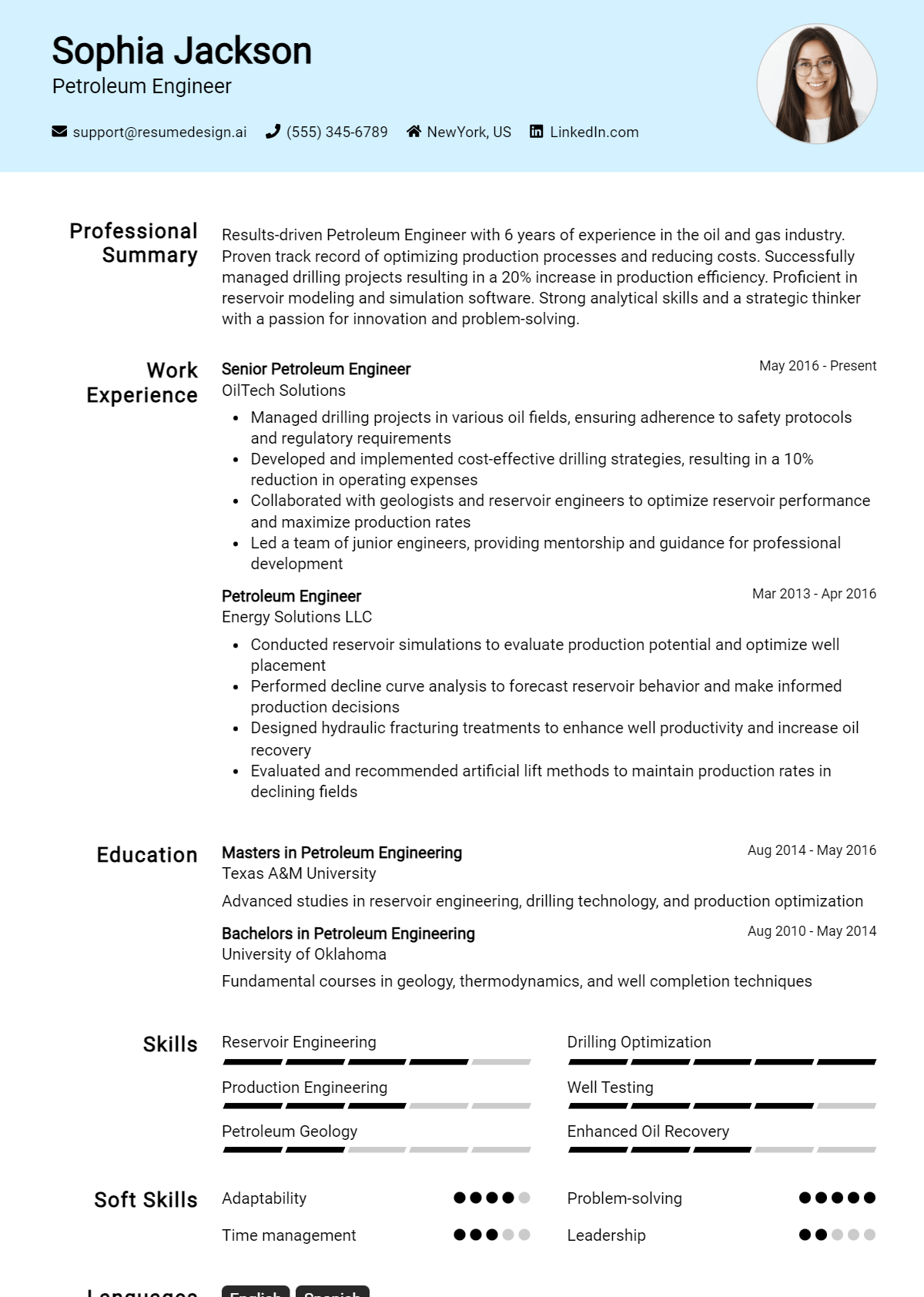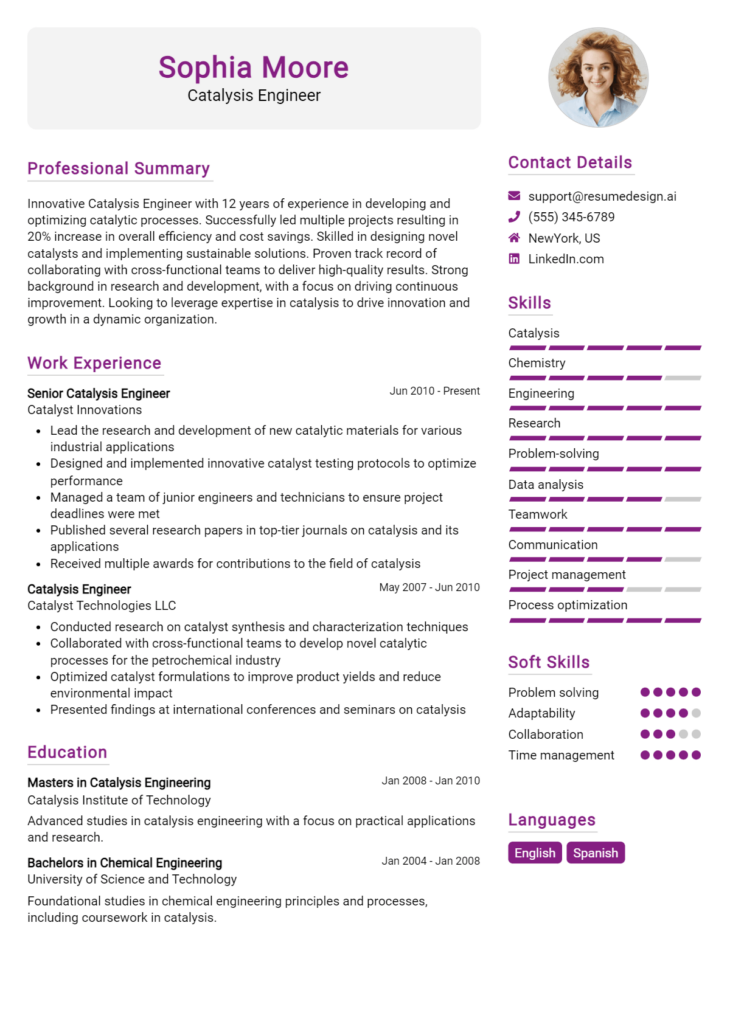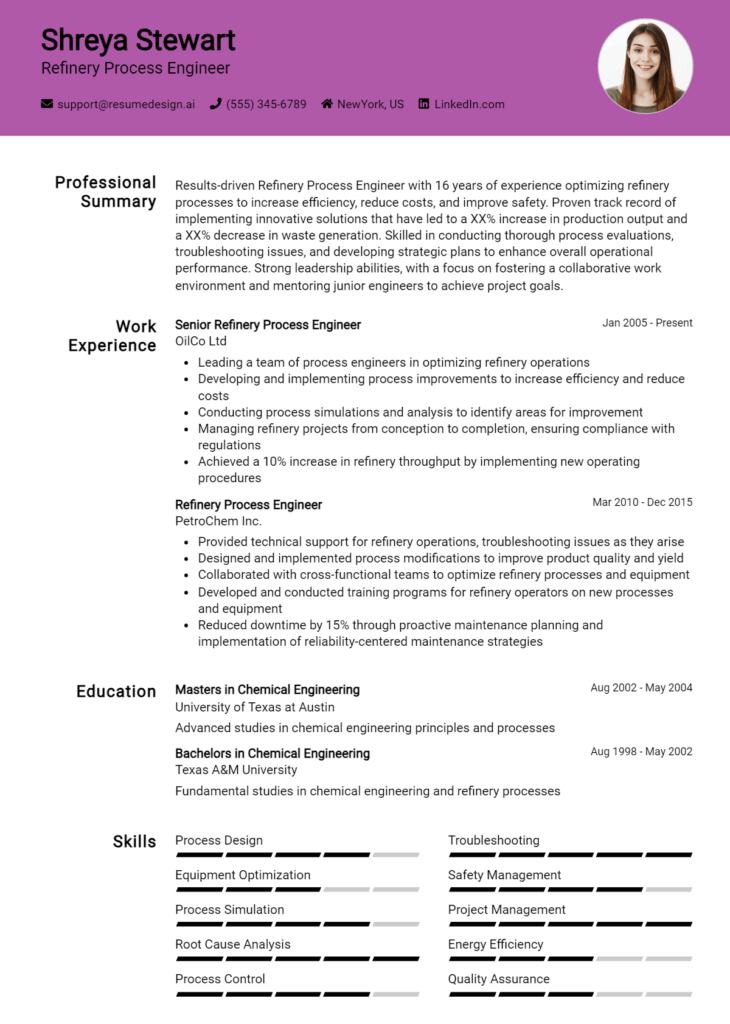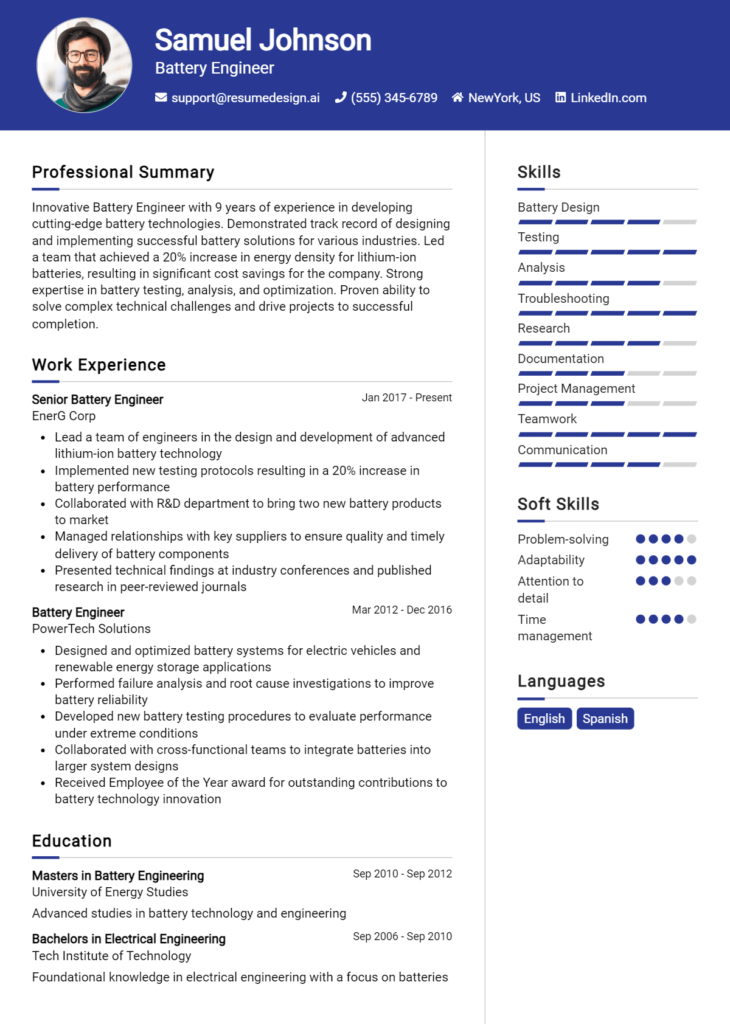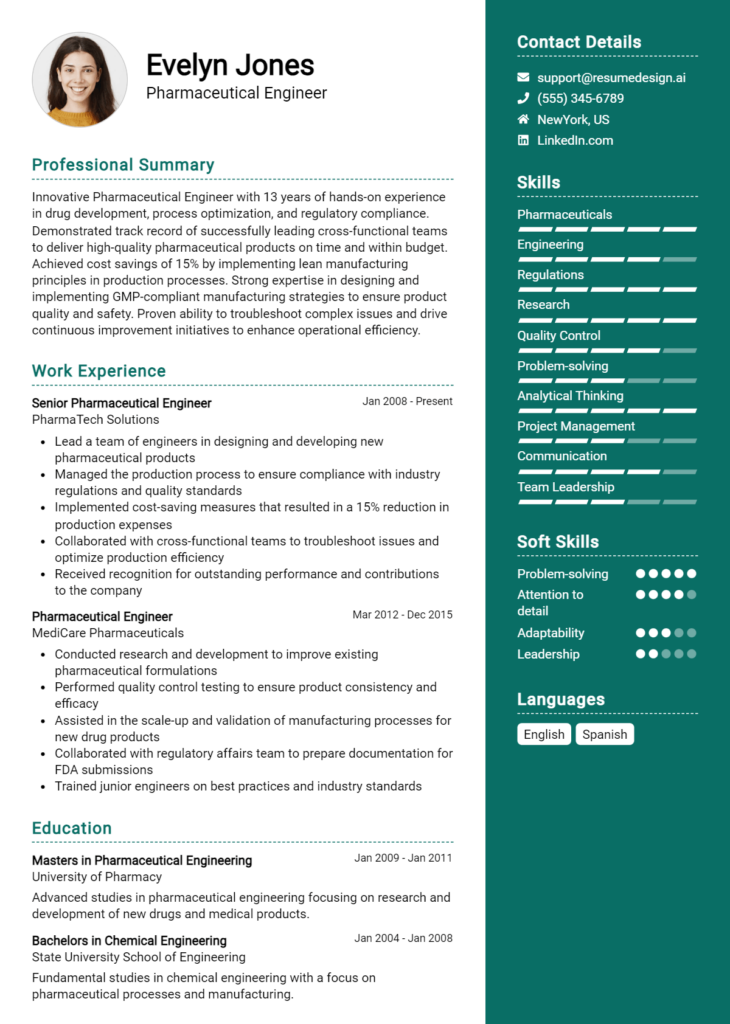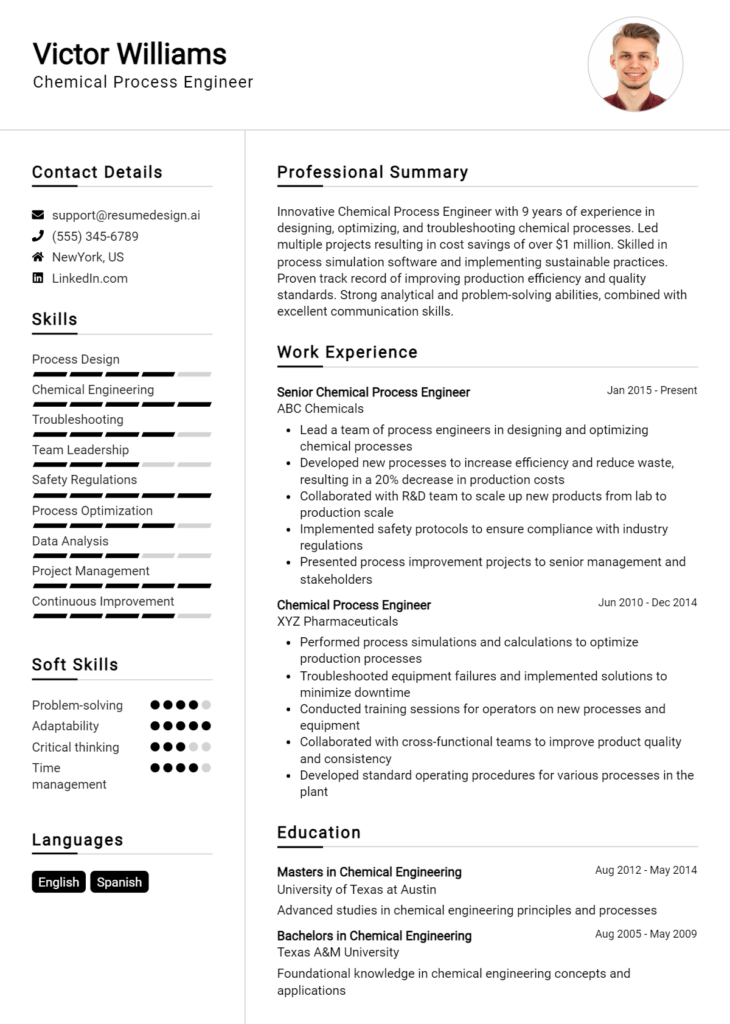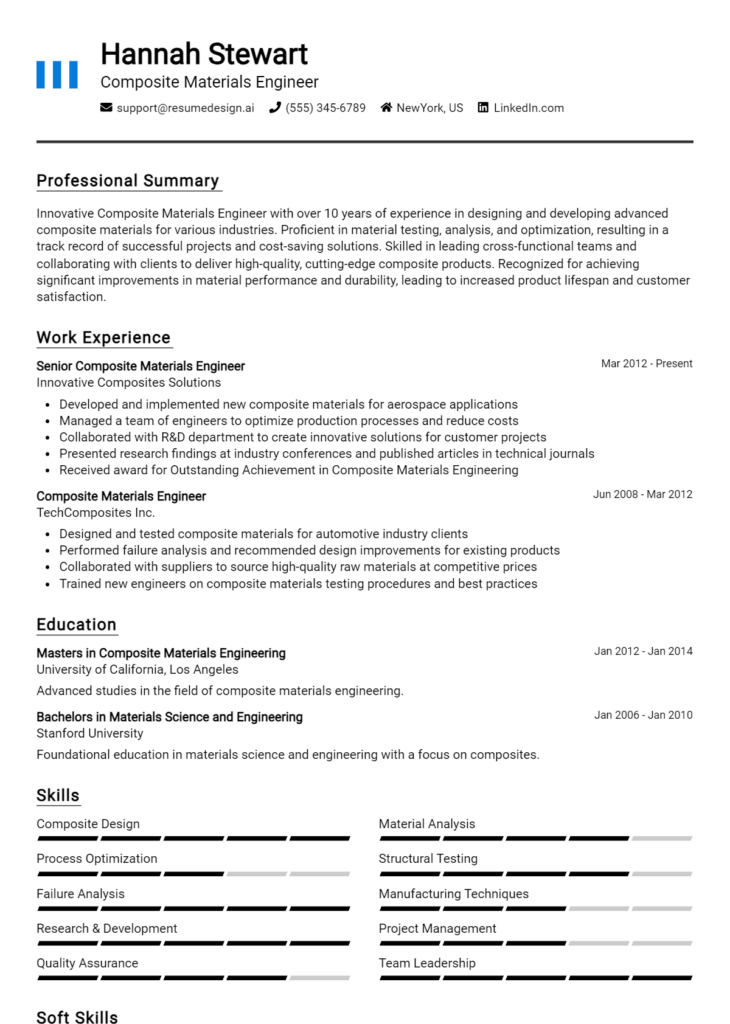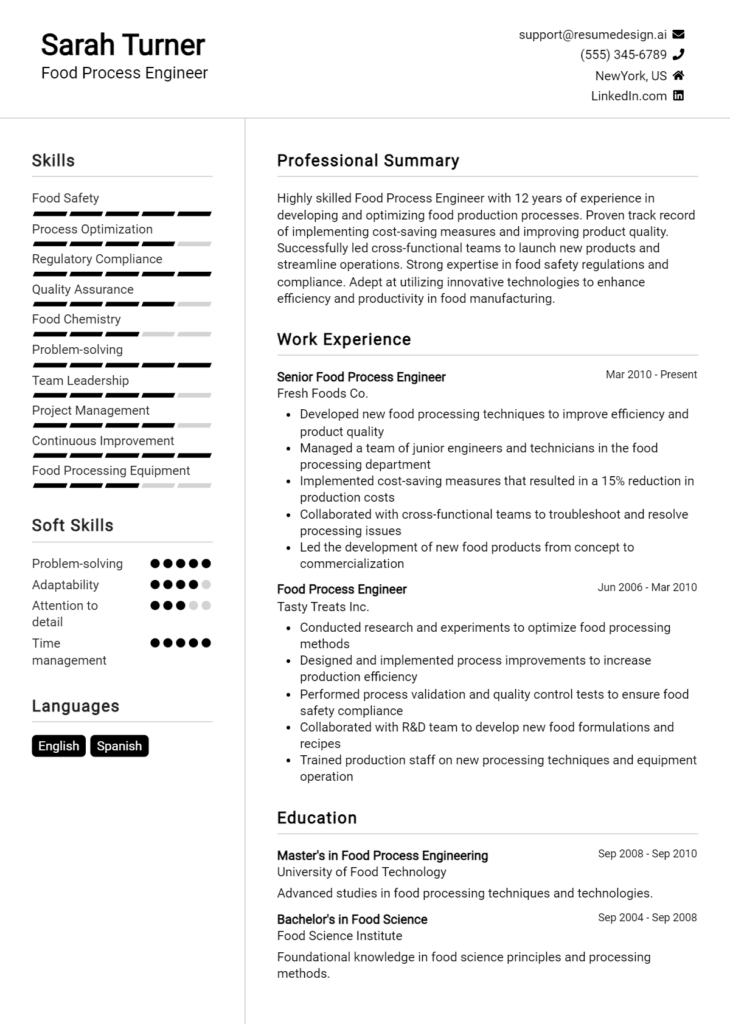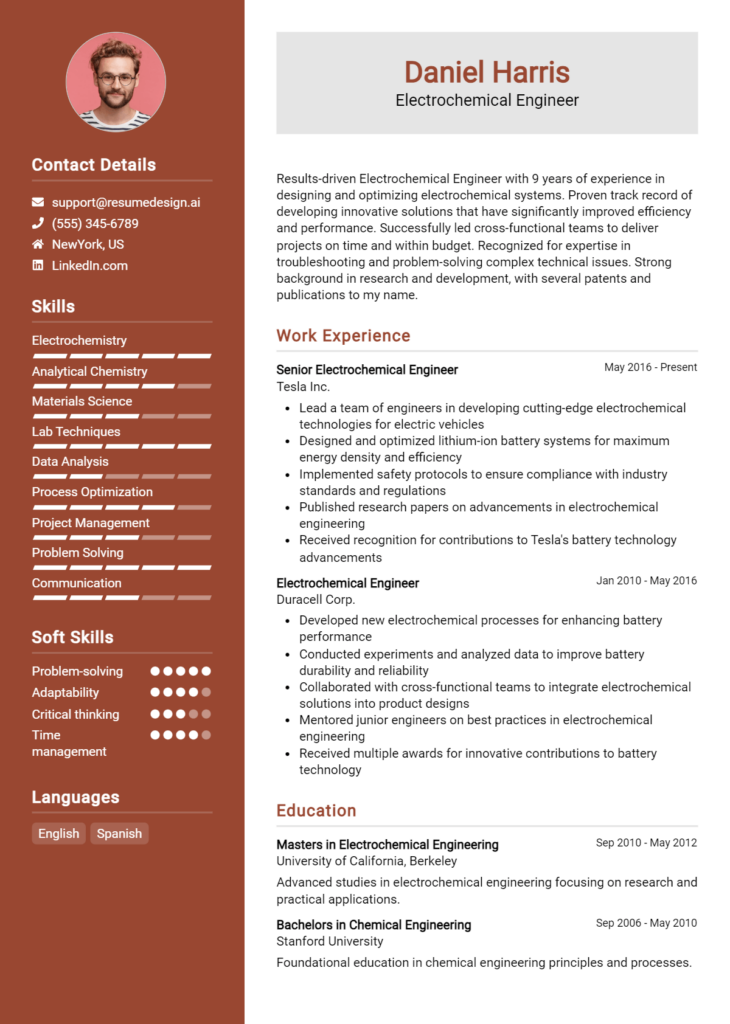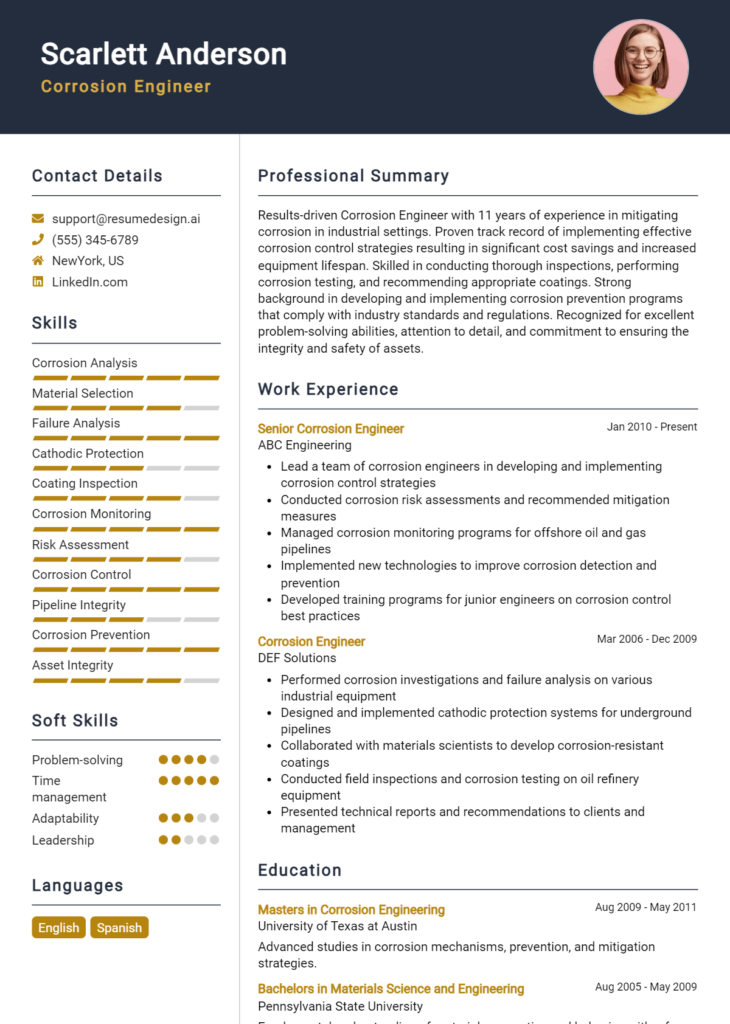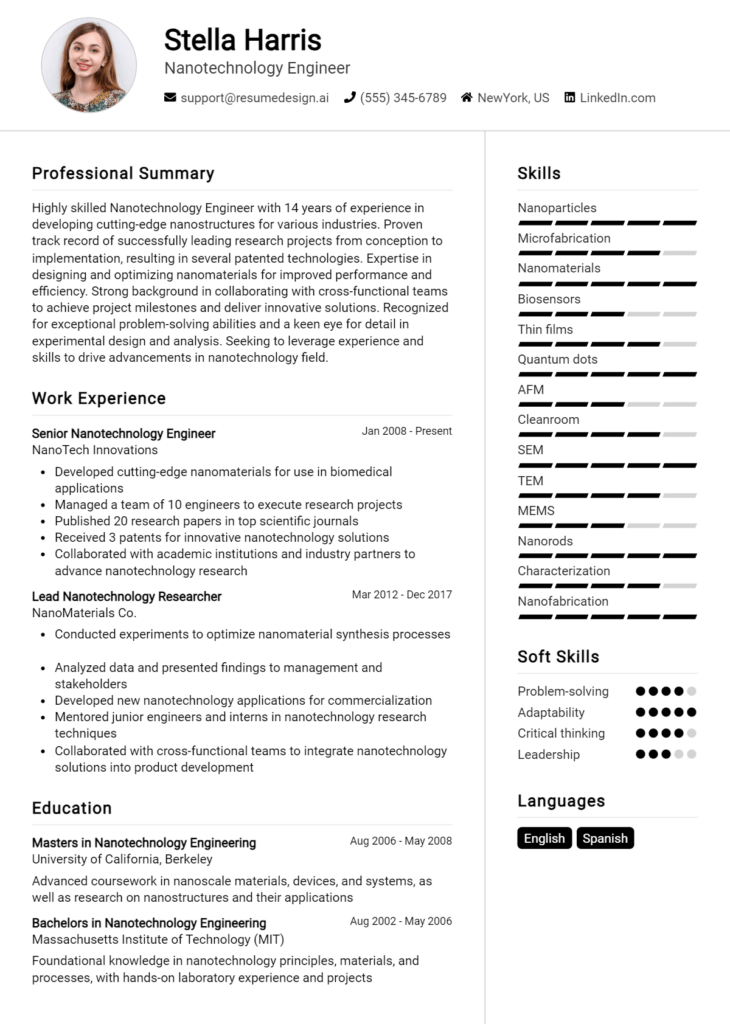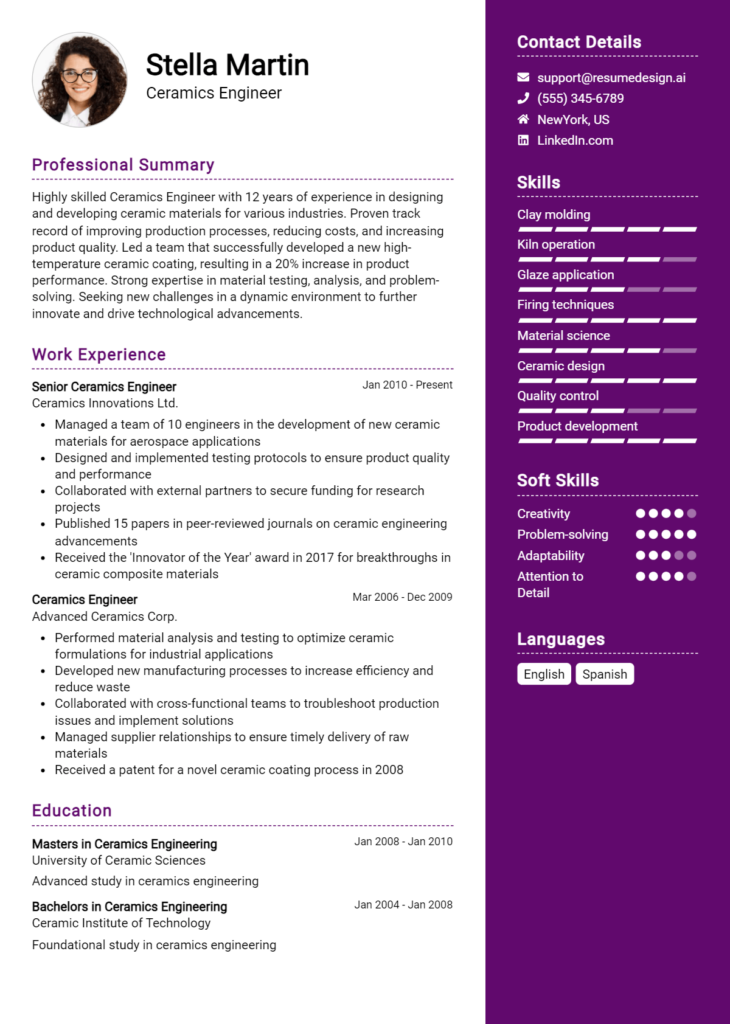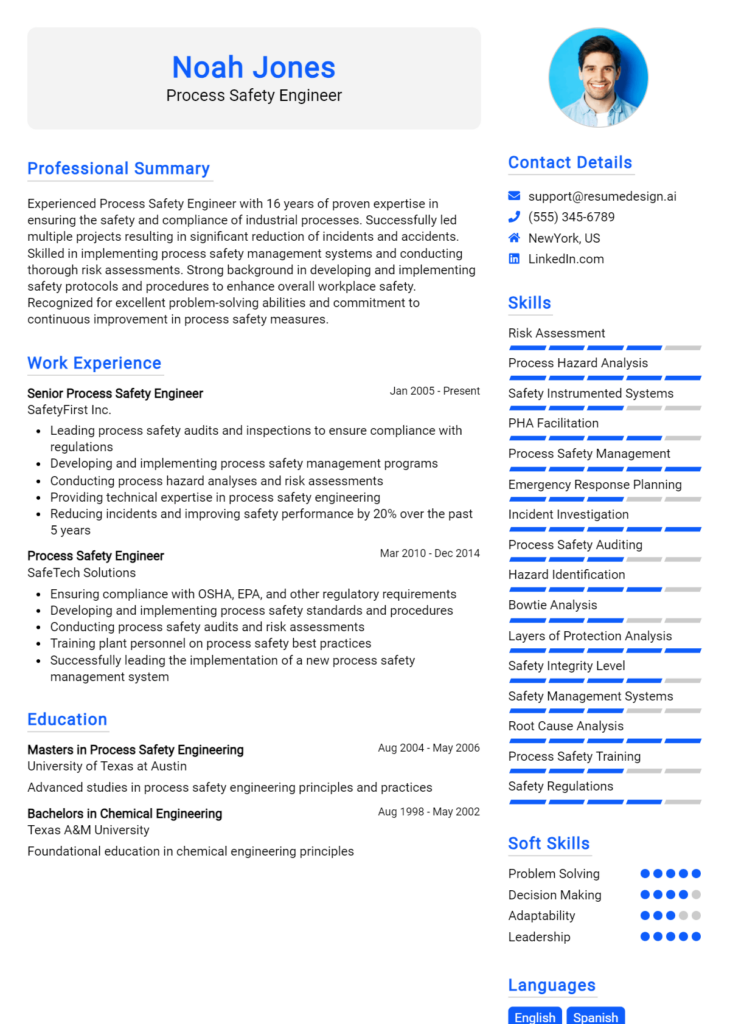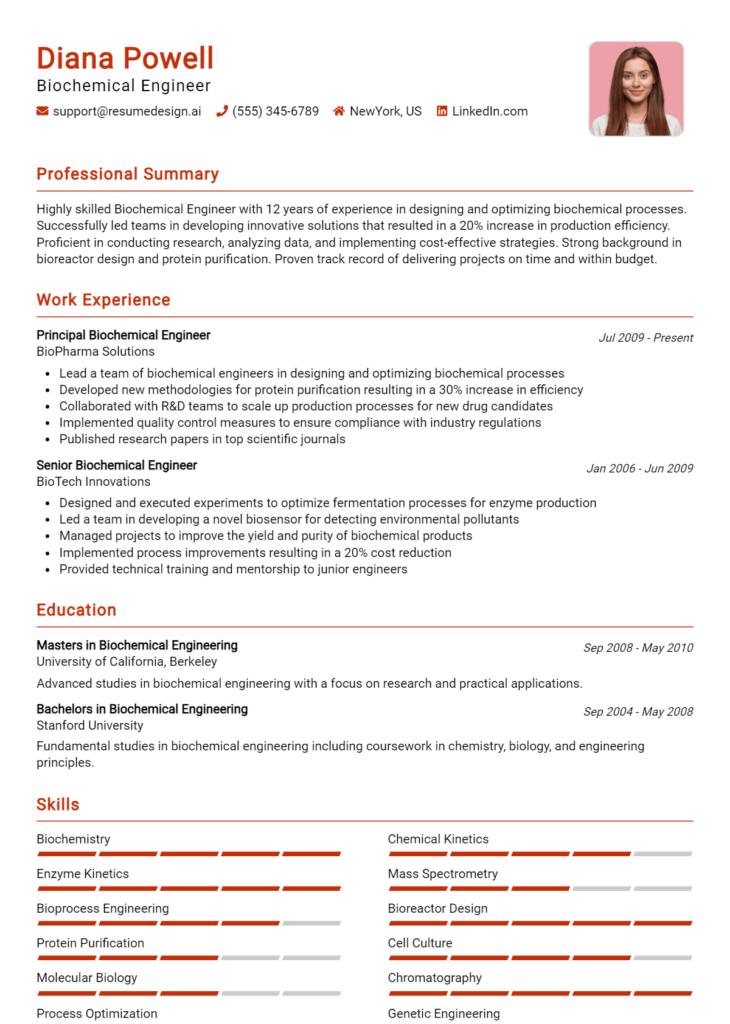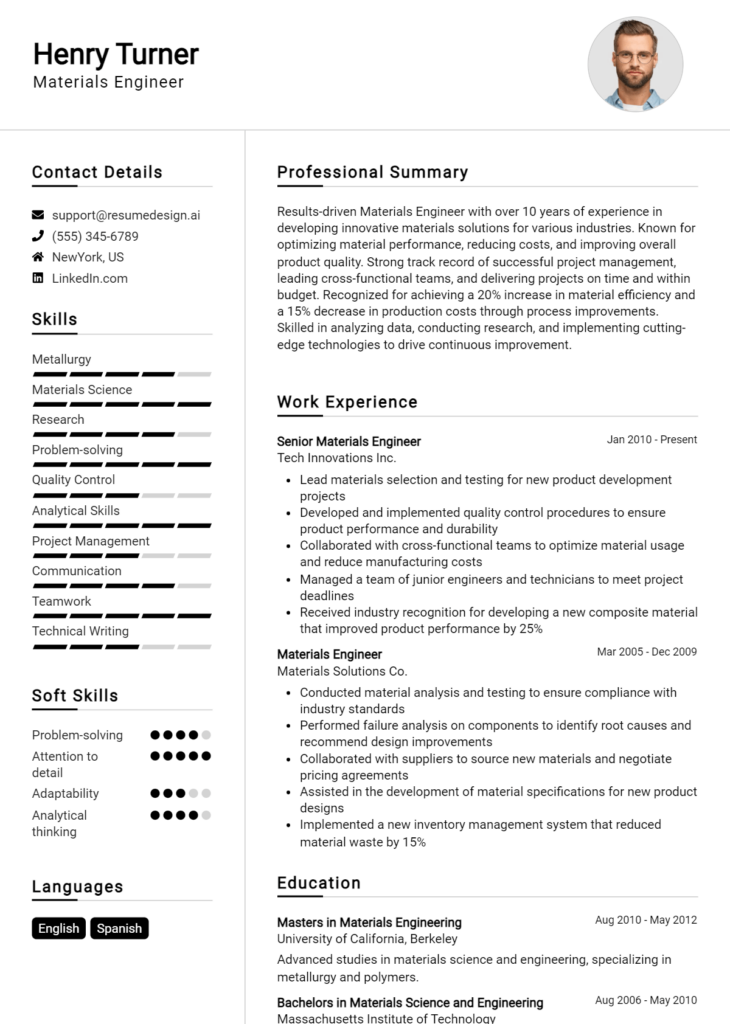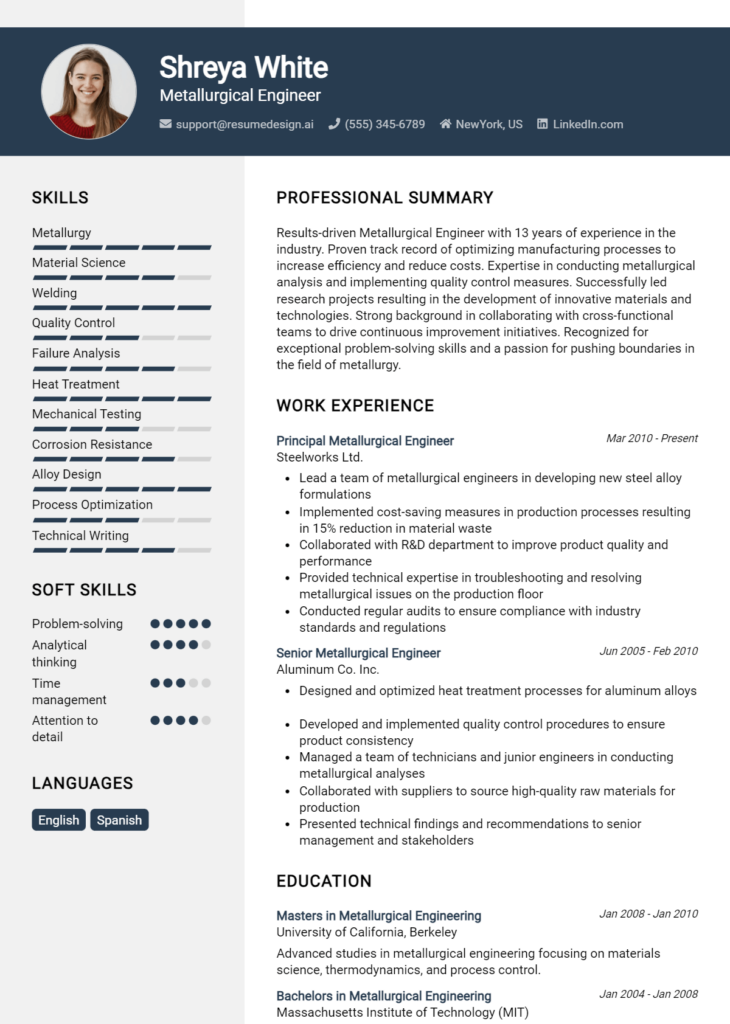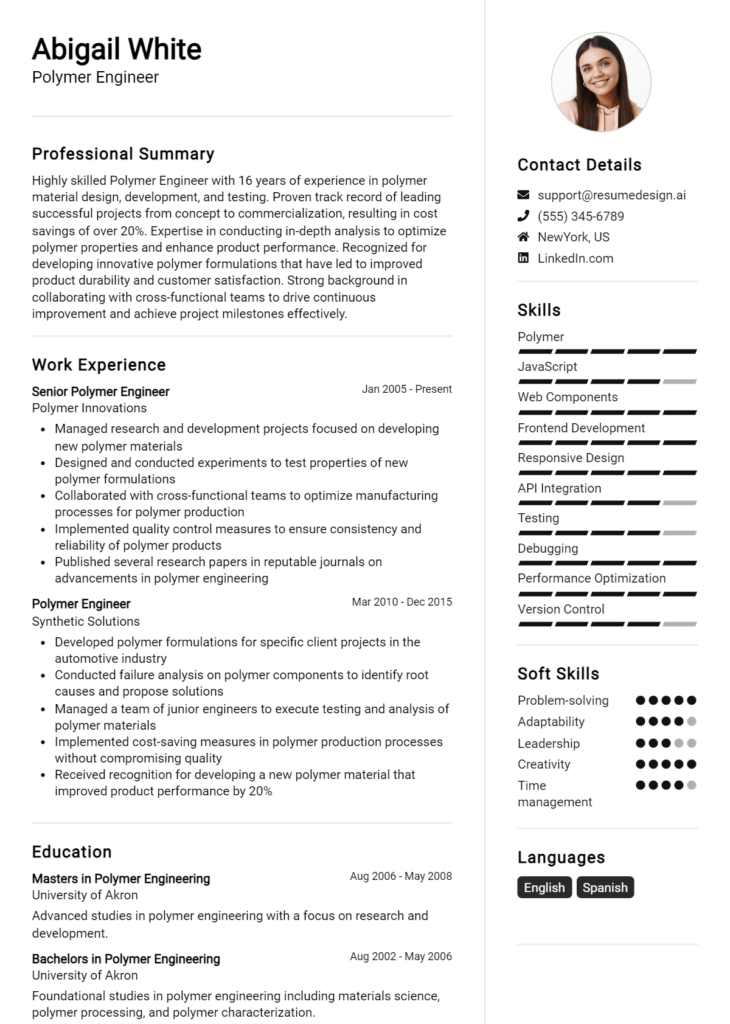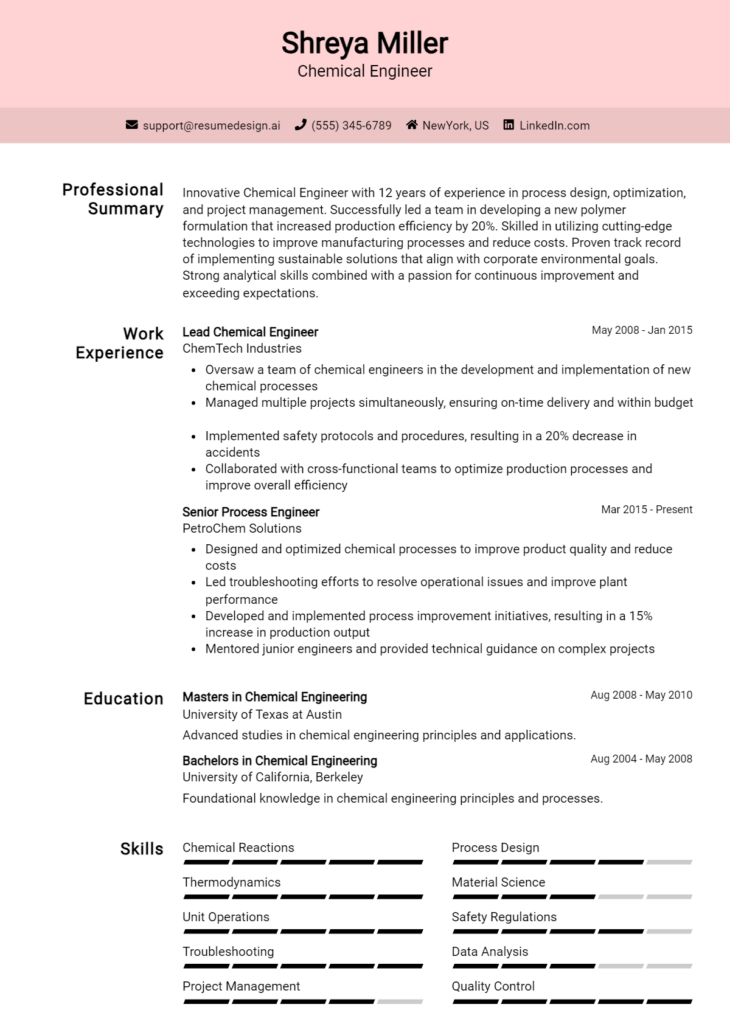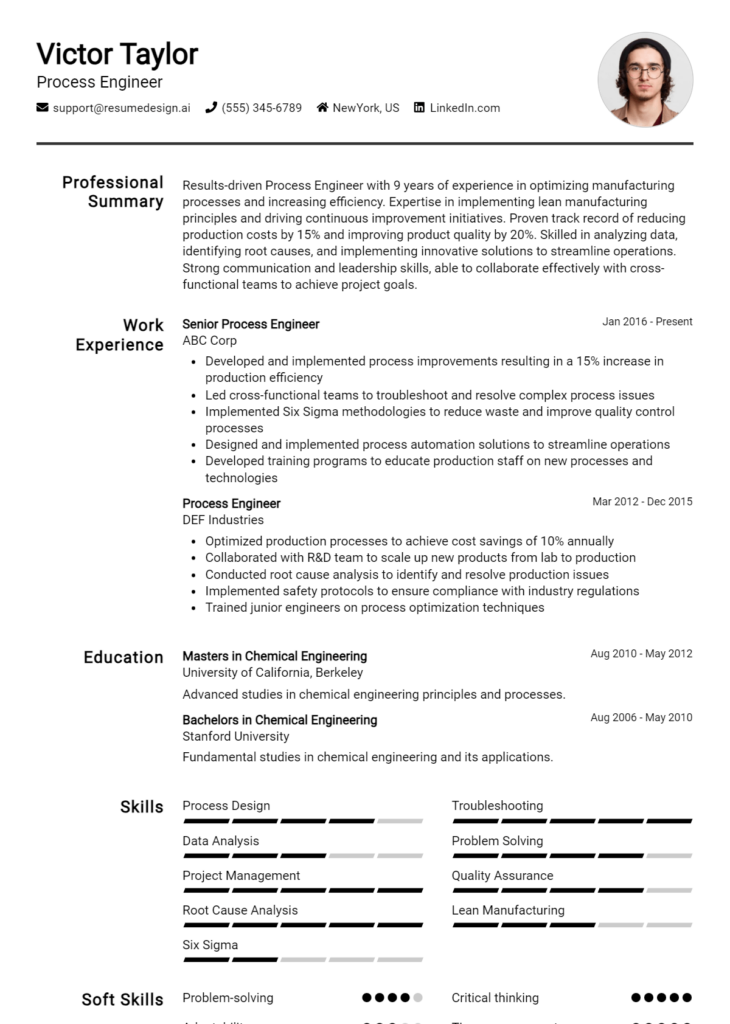Petroleum Engineer Core Responsibilities
A Petroleum Engineer plays a crucial role in the exploration and production of oil and gas, requiring a blend of technical knowledge, operational expertise, and strong problem-solving abilities. Key responsibilities include designing extraction methods, analyzing geological data, and collaborating with geologists and production teams to optimize resource recovery. Effective communication and analytical skills are essential for addressing challenges and ensuring safety and efficiency. A well-structured resume highlighting these competencies can significantly enhance career prospects in this competitive field.
Common Responsibilities Listed on Petroleum Engineer Resume
- Conducting feasibility studies and risk assessments for drilling projects
- Designing and implementing drilling plans and techniques
- Analyzing geological and geophysical data
- Monitoring production rates and optimizing resource extraction
- Collaborating with cross-functional teams, including geologists and environmental specialists
- Ensuring compliance with safety and environmental regulations
- Developing and managing project budgets and timelines
- Utilizing advanced software for simulation and modeling
- Conducting field tests and evaluations of drilling equipment
- Providing technical support during drilling operations
- Preparing detailed reports and presentations for stakeholders
- Staying updated on industry trends and technological advancements
High-Level Resume Tips for Petroleum Engineer Professionals
In the competitive field of petroleum engineering, a well-crafted resume is not just a formality; it is often the first impression you make on a potential employer. Your resume serves as a powerful marketing tool that should effectively showcase your skills, experience, and accomplishments in the industry. It is crucial for your resume to reflect not only your technical expertise but also your ability to drive results in a fast-paced environment. This guide will provide practical and actionable tips specifically tailored for petroleum engineer professionals, helping you craft a resume that stands out in a crowded job market.
Top Resume Tips for Petroleum Engineer Professionals
- Tailor your resume to the specific job description by incorporating relevant keywords and phrases.
- Highlight your engineering experience, focusing on roles that involved exploration, drilling, production, and reservoir management.
- Quantify your achievements by using metrics, such as production increases, cost reductions, or efficiency improvements.
- Emphasize your technical skills, including software proficiency (e.g., PETREL, Eclipse) and knowledge of relevant regulations and standards.
- Include certifications and training that are pertinent to the petroleum industry, such as Professional Engineer (PE) licensure or HAZWOPER certification.
- Showcase your problem-solving abilities through specific examples of challenges you faced and how you overcame them.
- Incorporate soft skills that are important in the field, such as teamwork, communication, and leadership abilities.
- Use a clean and professional format that enhances readability, ensuring key information stands out.
- Keep your resume concise, ideally one page, while still including all relevant information to showcase your qualifications.
- Proofread your resume multiple times to eliminate any errors, as attention to detail reflects your professionalism.
By implementing these tips, you can significantly increase your chances of landing a job in the petroleum engineering field. A resume that effectively highlights your skills and achievements will not only capture the attention of hiring managers but also demonstrate your suitability for the role, setting you apart from other candidates in this highly specialized industry.
Why Resume Headlines & Titles are Important for Petroleum Engineer
In the competitive field of petroleum engineering, a well-crafted resume headline or title can serve as a powerful tool to capture the attention of hiring managers. A strong headline succinctly encapsulates a candidate's key qualifications, effectively summarizing their expertise and experience in just a few impactful words. This crucial element of a resume not only makes a strong first impression but also sets the tone for the rest of the application. By ensuring that the headline is concise, relevant, and directly related to the position being applied for, candidates can significantly enhance their chances of standing out in a crowded job market.
Best Practices for Crafting Resume Headlines for Petroleum Engineer
- Keep it concise: Aim for a headline that is brief yet informative.
- Be role-specific: Tailor the headline to reflect the specific position you are applying for.
- Highlight key skills: Include your most relevant skills or certifications in the headline.
- Use impactful language: Choose powerful words that convey confidence and expertise.
- Incorporate experience level: Mention years of experience or specific industries worked in, if applicable.
- Avoid jargon: Use clear and straightforward language that can be easily understood.
- Focus on achievements: If possible, hint at significant accomplishments or contributions.
- Make it unique: Stand out by showcasing your personal brand or unique selling proposition.
Example Resume Headlines for Petroleum Engineer
Strong Resume Headlines
"Innovative Petroleum Engineer with 10+ Years of Experience in Enhanced Oil Recovery Techniques"
“Results-Oriented Petroleum Engineer Specializing in Reservoir Management and Optimization”
“Dynamic Petroleum Engineer with Proven Track Record in Project Management and Cost Reduction”
Weak Resume Headlines
“Petroleum Engineer Looking for Job”
“Engineer with Experience”
The strong headlines are effective because they are specific, highlighting key skills, experience, and areas of specialization that are relevant to the role of a petroleum engineer. They convey confidence and expertise while providing a clear picture of the candidate's qualifications. In contrast, the weak headlines fail to impress due to their vagueness and lack of detail, leaving hiring managers with no clear understanding of the candidate's strengths or why they would be a good fit for the position. By avoiding generic phrases and instead focusing on impactful language, candidates can create a lasting impression that encourages further review of their resume.
Writing an Exceptional Petroleum Engineer Resume Summary
In the competitive field of petroleum engineering, a well-crafted resume summary serves as a critical first impression for hiring managers. This concise paragraph succinctly encapsulates a candidate's key skills, relevant experience, and notable accomplishments, allowing them to stand out in a sea of applicants. A strong summary not only highlights the candidate's qualifications but also aligns them with the specific requirements of the job they are pursuing, thereby increasing the likelihood of securing an interview. By being impactful and tailored, the resume summary sets the tone for the entire application and can significantly influence the hiring manager's decision.
Best Practices for Writing a Petroleum Engineer Resume Summary
- Quantify achievements to demonstrate impact, such as percentage increases in efficiency or cost savings.
- Highlight key skills relevant to petroleum engineering, including reservoir modeling, production optimization, and drilling techniques.
- Tailor the summary to match the specific job description, using keywords and phrases from the posting.
- Keep the summary concise, ideally between 3-5 sentences, to maintain clarity and engagement.
- Use action verbs to convey a sense of proactivity and results-oriented mindset.
- Focus on your unique selling points that differentiate you from other candidates, such as certifications or specialized training.
- Incorporate industry-specific language to resonate with hiring managers familiar with petroleum engineering concepts.
- Avoid jargon that may not be understood by all readers, ensuring clarity and accessibility.
Example Petroleum Engineer Resume Summaries
Strong Resume Summaries
Results-driven Petroleum Engineer with over 8 years of experience in optimizing production processes, achieving a 20% increase in output through innovative reservoir management strategies. Proficient in advanced simulation software and drilling techniques, with a proven track record of reducing operational costs by 15% annually.
Dedicated Petroleum Engineer specializing in subsurface analysis and field development planning, successfully led a team that enhanced recovery rates by 25% in a challenging offshore project. Certified in both safety management and environmental regulations, ensuring compliance while maximizing efficiency.
Dynamic Petroleum Engineer with expertise in hydraulic fracturing and well completion, known for implementing cost-effective solutions that saved $1.2 million in project expenditures. Skilled in cross-functional collaboration to drive innovation and process improvements across drilling operations.
Weak Resume Summaries
Experienced engineer looking for a new opportunity in the petroleum industry. I have worked on various projects and have some knowledge of drilling and production.
Petroleum Engineer with a background in engineering. I am a hardworking individual who is eager to learn and contribute to a team.
The strong resume summaries are considered effective because they include quantifiable results, specific skills, and relevant industry experience that directly relate to the petroleum engineering role. They present the candidate as accomplished and capable, using concrete examples that demonstrate their value. In contrast, the weak summaries lack detail and specificity; they are generic and do not convey any measurable achievements or unique qualifications, thus failing to capture the attention of hiring managers.
Work Experience Section for Petroleum Engineer Resume
The work experience section of a Petroleum Engineer resume is critical in demonstrating the candidate's technical proficiency and practical knowledge in the field. This section serves as a platform to showcase not only individual achievements but also the ability to lead teams, manage projects, and ensure the delivery of high-quality products. By quantifying achievements and aligning experiences with industry standards, candidates can effectively illustrate their value to potential employers, highlighting both their technical skills and their contributions to successful project outcomes.
Best Practices for Petroleum Engineer Work Experience
- Highlight specific technical skills relevant to the petroleum industry, such as reservoir engineering, drilling operations, and production optimization.
- Quantify achievements with measurable results, such as percentage increases in production or cost savings achieved through innovative strategies.
- Use action verbs to convey leadership and initiative, showcasing your ability to lead projects and teams effectively.
- Tailor your experiences to align with the job description, emphasizing skills and achievements that match industry standards.
- Include collaborative projects and teamwork experiences to demonstrate your ability to work effectively in multidisciplinary teams.
- Provide context for your achievements by explaining the challenges faced and how your contributions led to successful outcomes.
- Focus on results-oriented statements that reflect your impact on the organization and the industry.
- Use clear and concise language to ensure the information is easily digestible for hiring managers.
Example Work Experiences for Petroleum Engineer
Strong Experiences
- Led a team of engineers in the redesign of a drilling program, resulting in a 20% reduction in drilling costs and a 15% increase in operational efficiency.
- Implemented a new reservoir management strategy that improved oil recovery rates by 30%, contributing to an additional $5 million in annual revenue.
- Collaborated with cross-functional teams to develop a predictive maintenance program that decreased equipment downtime by 25%, enhancing overall productivity.
- Managed a successful project to optimize production techniques, achieving a 10% increase in output while reducing environmental impact through innovative practices.
Weak Experiences
- Worked on various projects related to drilling and production.
- Assisted in team efforts to improve processes in the petroleum industry.
- Participated in meetings and discussions about engineering strategies.
- Contributed to projects that involved oil and gas extraction.
The examples above illustrate the distinction between strong and weak experiences in a Petroleum Engineer's resume. Strong experiences are characterized by specific, quantifiable outcomes and clear leadership roles, emphasizing the candidate's direct contributions to successful projects. In contrast, weak experiences lack detail and measurable achievements, making it difficult for potential employers to assess the candidate's impact or technical expertise. By focusing on strong, results-oriented statements, candidates can better position themselves as valuable assets in the competitive field of petroleum engineering.
Education and Certifications Section for Petroleum Engineer Resume
The education and certifications section in a Petroleum Engineer resume is crucial for showcasing a candidate's academic credentials, industry-specific certifications, and ongoing commitment to professional development. This section acts as a testament to the candidate's foundational knowledge in engineering principles, as well as their expertise in specialized areas relevant to the petroleum industry. By including relevant coursework, certifications, and specialized training, candidates can significantly enhance their credibility and demonstrate their alignment with the demands of the job role, making them more attractive to potential employers.
Best Practices for Petroleum Engineer Education and Certifications
- List relevant degrees in engineering, specifically in petroleum, chemical, or mechanical engineering.
- Include industry-recognized certifications such as the Engineer-in-Training (EIT) or Professional Engineer (PE) licenses.
- Highlight any specialized training programs or workshops relevant to petroleum engineering.
- Provide details on relevant coursework that demonstrates expertise in areas such as reservoir engineering, drilling engineering, and production technology.
- Keep the information up-to-date and relevant to the specific job you are applying for.
- Use clear formatting to make the education and certifications section easy to navigate.
- Incorporate any honors or awards received during your academic career that are relevant to the field.
- Consider including memberships in relevant professional organizations, such as the Society of Petroleum Engineers (SPE).
Example Education and Certifications for Petroleum Engineer
Strong Examples
- Bachelor of Science in Petroleum Engineering, University of Texas at Austin, 2022
- Professional Engineer (PE) Certification, State of Texas, 2023
- Certificate in Advanced Reservoir Engineering, Society of Petroleum Engineers, 2023
- Relevant Coursework: Drilling Engineering, Reservoir Simulation, Production Operations
Weak Examples
- Bachelor of Arts in English Literature, University of California, 2015
- Certification in Basic AutoCAD, 2019
- Online Course in Creative Writing, 2020
- Associate Degree in Business Administration, 2018
The examples listed are considered strong because they directly relate to the field of petroleum engineering, showcasing relevant degrees, certifications, and coursework that enhance the candidate's qualifications for the role. In contrast, the weak examples reflect educational backgrounds and certifications that do not align with the requirements of a petroleum engineer, indicating a lack of specialized knowledge and training in the industry.
Top Skills & Keywords for Petroleum Engineer Resume
As a Petroleum Engineer, showcasing the right skills on your resume is crucial for standing out in a competitive job market. Employers seek candidates who not only possess technical expertise but also demonstrate soft skills that facilitate teamwork, problem-solving, and effective communication. Highlighting a combination of both hard and soft skills can significantly enhance your resume, making it more appealing to potential employers. By focusing on essential abilities, you can better illustrate your qualifications and readiness to tackle the challenges in the petroleum engineering field.
Top Hard & Soft Skills for Petroleum Engineer
Soft Skills
- Problem-Solving
- Communication
- Teamwork
- Analytical Thinking
- Adaptability
- Leadership
- Time Management
- Attention to Detail
- Creativity
- Interpersonal Skills
- Negotiation Skills
- Critical Thinking
- Conflict Resolution
- Initiative
- Decision-Making
Hard Skills
- Drilling Engineering
- Reservoir Engineering
- Production Technology
- Well Testing
- Geomechanics
- Project Management
- Environmental Regulations
- Data Analysis
- Simulation Software (e.g., Eclipse, CMG)
- Geophysical Analysis
- Oil and Gas Exploration
- Economic Analysis
- Enhanced Oil Recovery Techniques
- Subsurface Mapping
- Asset Management
To ensure your resume effectively showcases your qualifications, consider exploring additional resources on skills and work experience to further refine your application.
Stand Out with a Winning Petroleum Engineer Cover Letter
I am writing to express my interest in the Petroleum Engineer position at [Company Name] as advertised on [where you found the job listing]. With a Bachelor’s degree in Petroleum Engineering from [Your University] and over [X years] of experience in the oil and gas industry, I am excited about the opportunity to contribute to your team. My background includes extensive experience in reservoir engineering, drilling operations, and production optimization, which I believe aligns well with the needs of your organization.
During my previous role at [Previous Company], I successfully led a project that increased oil recovery by [specific percentage or amount] through innovative reservoir simulation techniques and enhanced oil recovery methods. My ability to analyze complex data and implement effective solutions has not only improved production rates but also reduced operational costs. I am proficient in using industry-standard software such as [list relevant software], which allows me to conduct detailed analyses and simulations that drive informed decision-making.
I am particularly drawn to [Company Name] because of your commitment to [specific company values or projects], and I am eager to bring my skills in project management and cross-functional collaboration to your team. I have a proven ability to work effectively with geologists, environmental scientists, and other engineers to ensure project success and compliance with safety and environmental regulations. I am confident that my proactive approach and dedication to continuous improvement will make a positive contribution to your ongoing projects.
Thank you for considering my application. I am looking forward to the opportunity to discuss how my expertise in petroleum engineering can support [Company Name] in achieving its goals. I am eager to bring my passion for innovation and sustainability in the oil and gas sector to your esteemed company. Please feel free to contact me at [Your Phone Number] or [Your Email] to schedule a conversation.
Conclusion
As we’ve explored the vital role of Petroleum Engineers in the energy sector, it’s clear that their expertise is crucial for optimizing resource extraction and ensuring environmental sustainability. Key responsibilities include designing drilling plans, conducting reservoir simulations, and collaborating with geologists to maximize oil and gas recovery. The demand for skilled professionals in this field continues to grow, making a strong resume essential for standing out in the competitive job market.
To ensure your resume effectively showcases your skills, experience, and accomplishments, consider reviewing and updating it regularly. Highlight your technical skills, problem-solving abilities, and any relevant certifications or projects that demonstrate your expertise in petroleum engineering.
We encourage you to take action today by utilizing the available resources to enhance your job application materials. Explore our resume templates for a professional layout, try our resume builder for a step-by-step approach to crafting your resume, check out resume examples for inspiration, and don’t forget to create a compelling cover letter with our cover letter templates. By leveraging these tools, you can present yourself as the ideal candidate ready to make a significant impact in the petroleum engineering field.

